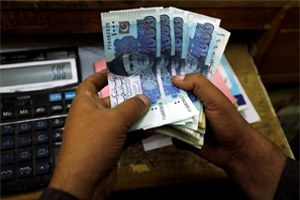
Deposit growth hits 14-year low
Banks seem to have hit the brakes on deposit mobilisation in December, a rare development that analysts attribute to the lenders’ attempt at reducing their tax bills. In a break from the past when bankers would hustle for deposits at the end of the calendar year to meet performance targets, the annual pace of deposit mobilisation slowed down to 7.1 per cent for 2022, down from 17pc for 2021. Their attempt to limit the deposit accumulation is meant to increase the advance-to-deposit ratio (ADR) — a performance benchmark that the government is using to charge a new tax on banks. The ADR measures loans as a percentage of deposits. A lower ADR means the bank is investing a higher proportion of its deposits in risk-free government securities while ignoring private-sector borrowers. Banks want their ADRs to be recorded at a higher level, which’ll save them from the new tax. Deposits shrank 1.2pc in December on a month-on-month basis alone. According to experts' year-on-year growth rate will normalise in January and the rate of deposit increase will go back to the double digits.
|

LIVE launched to check under-invoicing
Pakistan Customs has launched an indigenously developed Linking International Value (LIVE) automated system to control the perennial problem of under-invoicing as part of reforms to facilitate trade and businesses. Developed by the Directorate of Reforms & Automation team, LIVE has been integrated with the Web-Based One Customs (WeBOC) system. Overhauling the existing system for improving the assessment of imported goods is one of the main objectives of the current reform efforts. The automated system has been made part of the prime minister’s strategic roadmap for plugging revenue leakages and reducing the tax gap. The system is both automated and trade-friendly as it has been digitally made available International Values to all the assessing officers in Pakistan on their screens. Values of other important items will be integrated into the system by June 30, 2023, the official said. Launched by the Directorate General Valuation (Customs), Karachi, the electronic solution is believed to address the perennial problem of under-invoicing.
|
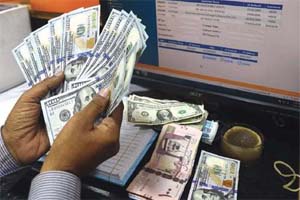
Pakistan receives $140m RDA inflows, lowest since Dec ‘20
Foreign currency inflows from overseas Pakistanis through Roshan Digital Account (RDA) clocked in at $140 million in December, according to data from the State Bank of Pakistan. The latest RDA inflows are the lowest since December 2020, according to a local brokerage house. Since the launch of RDA in September 2020 to December 2022, the country received a total of $5.6 billion in inflows from the Pakistani diaspora living abroad. During this period, the amount invested through Naya Pakistan Certificates (NPCs) was $3.5 billion. Within NPCs, $1.772 billion was invested in conventional NPCs and $1.725 billion in Islamic certificates. Expatriate Pakistanis invested $48 million in the stock market. The non-resident Pakistanis (NRPs) from 175 different countries opened 511,159 RDAs. Across the world, the majority of central banks are aggressively tightening their monetary policies as a result of the skyrocketing inflation. Because of this, returns on NPCs were no longer competitive. On top of that, political upheaval has further undermined the investors’ trust, pushing them to sell their NPC holdings. However, the one-year dollar-denominated NPC remained one of Pakistan's top-performing assets in 2022.
|
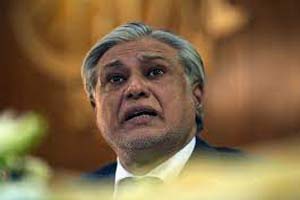
Govt considering 50-70pc Windfall Tax on banking sector profits
The government is contemplating its options for slapping a Windfall Tax on the profits of banking sector in the range of 50 to 70 percent just on the pattern of the Western world, which imposed the same tax on energy companies. “Different proposals are under consideration for imposing the Windfall Tax on profits earned by the banking sector. A fixed tax rate from 50 to 70 percent is expected to be slapped for getting revenues out of the lofty profits earned by the banks,” top official sources said. However, official sources in the FBR said that the proposal was not yet approved by the government though Minister for Finance Ishaq Dar had hinted in his press briefing that the government would move ahead with the Windfall Tax on banking sector. The government is ascertaining the exact levels of windfall profits extracted by the banking sector through recent currency manipulation. The policymakers may slap a tax at a rate whereby there is no threat of choking the banking sector. The tax officials who are working on this proposal studied the Windfall Tax imposed by the UK, Austria, Italy, Australia and other countries whereby the energy companies had earned lofty profits in the aftermath of Russia-Ukraine war, so the respective governments had imposed the Windfall Tax to generate tax revenues. “The government expects that in case of imposition of 50 to 70 percent fixed tax rate on lofty bank profits, the government can fetch Rs25 to Rs35 billion revenue generation,” said one top official.
|
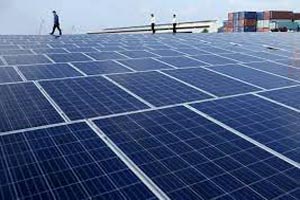
First phase of 1,000MW solar panels
Prime Minister Shehbaz Sharif was informed that the bidding process for the first phase of 1,000 MW solar panels would be started next week. While presiding over a review meeting regarding the implementation of measures to save energy in the country, the meeting was informed about the progress on the implementation of the solarization project. The prime minister was informed that in the initial phase, a total of 1000 MW of solar panels will be installed in the federal government buildings and in this regard, the bidding process of the first phase will start from next week. The meeting was further informed that the policymaking process for the production of solar panels at the local level in the country has also entered the final stages, in which the consultation with the industries related to the production of solar panels has also been completed. With regard to electronic motorcycles, the meeting was told that a comprehensive policy is being made by taking the industries into confidence to increase their production in the country, in which it was suggested that the ongoing process to fully electrify the motorcycles in the country. At the end of the year, all the industries should be transferred to what the participants of the meeting agreed upon. The meeting was further informed that not only all new gas geysers will be produced with conical baffles to save gas but their installation will be ensured in the existing geysers also by the end of this year. Regarding the production of filament/substandard old light bulbs with high power consumption, their production will not be allowed after consumption of the existing stock and the existing factories will be asked to manufacture new technology bulbs with low power consumption. will be transferred.
|

Mari Petroleum finds gas in Sindh
Mari Petroleum Company Ltd said on Monday it made a gas discovery at its exploratory well Mari Ghazij-1, located in Mari Development and Production Lease (D&PL) in Sindh. Mari Petroleum is the operator of Mari D&PL with 100 per cent working interest. The well was spud in on Nov 24, 2022. It was successfully drilled down to the depth of 1,015 metres. The gas flow rate established through drill stem test is 5.1 million standard cubic feet per day (mmscfd). The company said it plans to appraise the discovery to prove its extent and, in parallel, evaluate its development options.
|
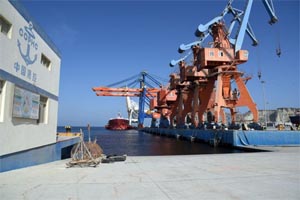
Gwadar port starts receiving bulk cargo
90,000MT urea has arrived while 450,000MT of wheat is expected next month The Gwadar port on Thursday started receiving government imports of bulk cargo as three vessels carrying 90,000MT urea arrived at the port and clocked the fastest discharge rate. The Trading Corporation of Pakistan (TCP), on behalf of the government, decided to handle the import of urea and wheat through the strategically significant port. The decision to use Gwadar port will ease congestion at other ports. High traffic of vessels carrying bulk cargoes delay operations and transportation of shipments, which in turn disturbs the entire supply chain mechanism. After the bulk cargos were discharged, they were bagged at the port and are being transported from Gwadar to other destinations in Pakistan. From next month, the port is expected to start handling of 450,000 MT of wheat, said a press release. Cargo ships docking at the port also offer substantial benefits to locals living in the nearby cities as they help generate economic activity and open employment opportunities. Gwadar Port offers substantial economic benefits to importers in terms of efficient operations, advanced cargo handling, vast storage facilities, extensive ancillary facilities, and faster turnaround. Its unique geographical position makes it a fast-economical link between some of the land-locked central Asian states.
|

19.7 mln mobile phones, smart devices manufactured locally in calendar year
Pakistan’s local mobile industry witnessed remarkable growth as the companies have manufactured around 19.7 million mobile phones and smart devices during the last calendar year, especially after the government introduced a Mobile Manufacturing Policy to encourage local production. “Due to increased local manufacturing, the import of mobile and smartphone devices has decreased from 10.26 million to a record level of 1.37 million,” a senior official of the Ministry of Information Technology and Telecommunication said. Under the Mobile Device Manufacturing Policy, he said around 30 mobile manufacturers have been issued licenses to start local production of mobile devices. “A mobile device manufacturing policy had been made to encourage local production and counter the security threat." The official said, the mobile devices produced by these manufacturers would not only be sold in the country but could also be exported to other competitive markets of the region and beyond. "The device manufacturing plants shall be instrumental in providing new job opportunities and low-priced handsets for Pakistani users.” He said the number of 3G and 4G service users in Pakistan had significantly increased and reached 121 million by end of November 2022, while the number of active mobile SIMs reached 194 million during the same period. The official informed that the number of broadband subscribers reached 124 million; whereas the broadband penetration was recorded at 56.00 per cent.
|

Millat Tractors shuts down production citing reduced demand, cash flow constraints
Pakistan’s biggest agricultural machinery manufacturer, Millat Tractors Limited, said that it would remain closed from January 6 till further notice, citing reduced demand and cash flow problems. In a regulatory filing, it stated, “Due to continuing reduced demand for tractors and cash flow constraints, the company will remain closed from Friday January 6, 2023 till further notice.” Millat Tractors Limited had earlier announced that it would observe Fridays as non-production days (NPDs) from Dec 16. A number of auto part vendors have suspended operations in recent months, citing reduced demand and import curbs imposed by the State Bank of Pakistan (SBP). Bolan Castings Ltd (BCL), the makers of various auto parts of tractors and commercial vehicles, had announced NPDs from Dec 5-23 due to declining sales. The production activities of Baluchistan Wheels Ltd (BWL), the makers of steel wheel rims for cars, heavy vehicles and farm tractors, also remained suspended from Dec 12-23 due to thin orders from the assemblers, the company said.
|
|

© 2023 Alpine Marine Services Private Limited
all rights reserved
|
|
|